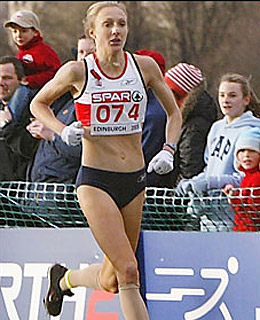
She has turned herself from a loser into a winner. That may be a harsh assessment of someone who finished fourth in the 10,000 m at the Sydney Olympics, but to the British runner Paula Radcliffe, 30, that result meant losing badly. Since then, she has won race after race and set a new world best for the marathon. She has had success not just in road races and cross-country but on the track too—a far harder arena in which to excel. If she has a little bit of luck in Athens this August, she will add an Olympic gold medal to her collections. But I don't think I'd be breaching confidences if I said that three years ago, many of us never envisioned her winning an Olympic title. She has pleasantly surprised everybody.
With Radcliffe, the fear was always that she would make a Herculean effort for 95% of a race and then get scooped up at the end by someone with a better kick finish. So she said, "Fine. If my vulnerability is that I am not as fast over 200 m as some other athletes, then I'm just going to make sure that I am so far ahead of them that it doesn't matter." And that is what she did. She has now broken world records. The question is whether she thinks she can do more. The answer lies with her. Athletes always have to believe that there is something they can do in the coming season. It's when they can't visualize themselves running any more quickly that they give up. Radcliffe hasn't reached anywhere near that point yet.
Coe is a two-time 1,500 meter Olympic gold-medalist
From the Archive
Big Fat Greek Problems: Less conventional issues are facing the Athens Olympic planners